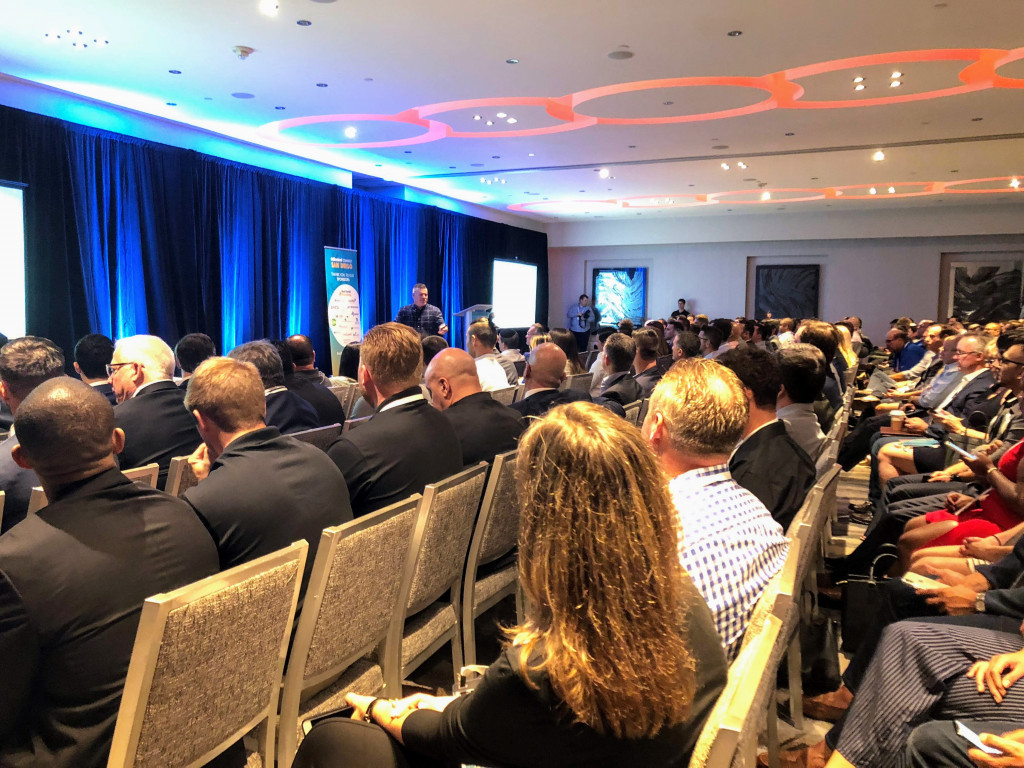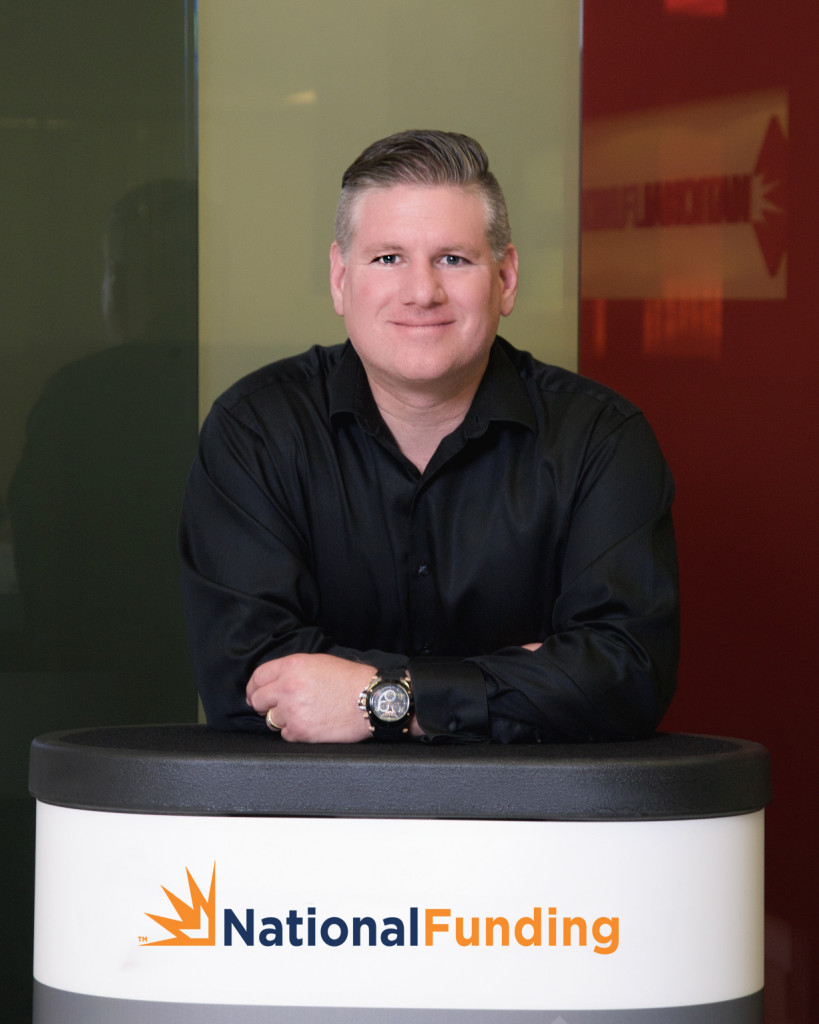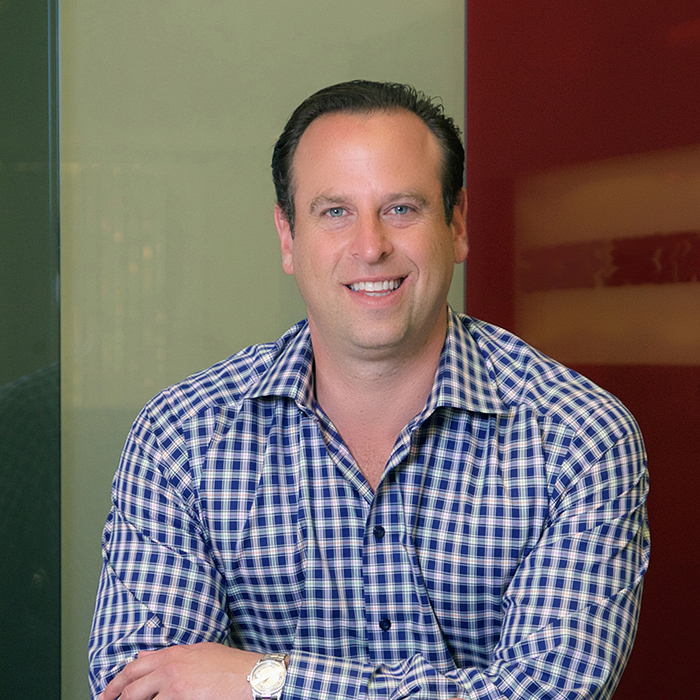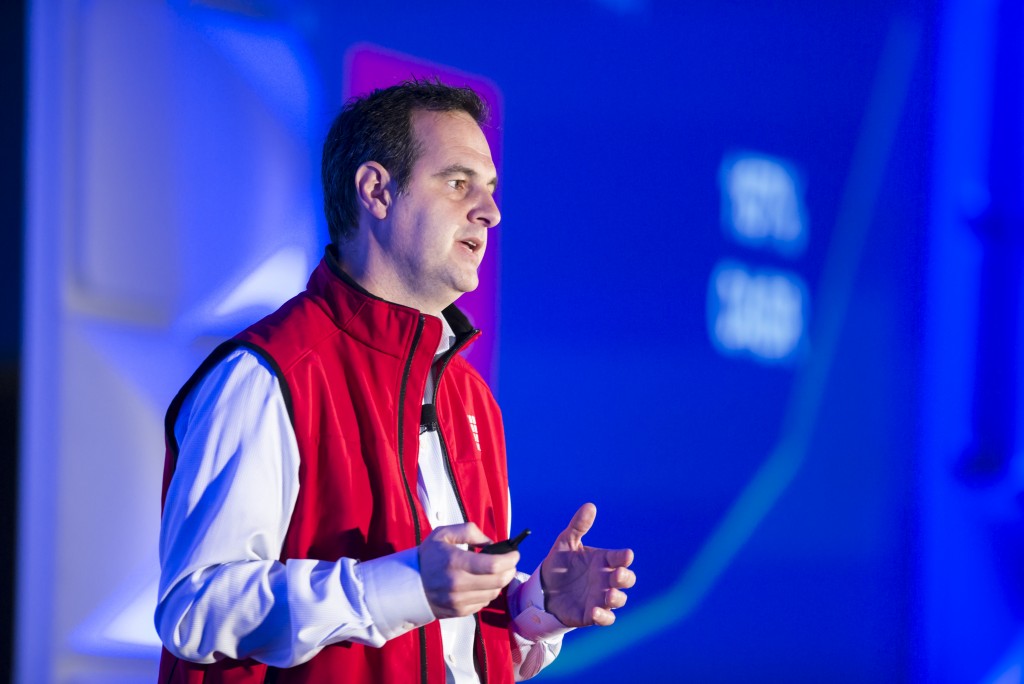Brief deBanked San Diego Recap
October 6, 2018 More than 300 people attended the first deBanked CONNECT event on the west coast at the Andaz Hotel in San Diego. The half-day learning and networking conference drew people in the small business finance space from across the country, including New York, Philadelphia, Detroit, Houston, Salt Lake City, and cities in Florida and all throughout California.
More than 300 people attended the first deBanked CONNECT event on the west coast at the Andaz Hotel in San Diego. The half-day learning and networking conference drew people in the small business finance space from across the country, including New York, Philadelphia, Detroit, Houston, Salt Lake City, and cities in Florida and all throughout California.
Sam Bobley, CEO of Ocrolus, which provides technology solutions mostly to direct funders, was among the first to check in before the official start time at 1:30 p.m. He came in from New York.
 “We went to Broker Fair in Brooklyn and made a lot of connections,” Bobley said. “We go to the other events, LendIt and Lend360, which are great, but they’re fairly broad. There, 1-2 out 5 people might be relevant [to online lending.] Here, everyone is. There’s no wasting time.”
“We went to Broker Fair in Brooklyn and made a lot of connections,” Bobley said. “We go to the other events, LendIt and Lend360, which are great, but they’re fairly broad. There, 1-2 out 5 people might be relevant [to online lending.] Here, everyone is. There’s no wasting time.”
The learning component of the day focused on sales and dealing with new regulations, primarily coming out of California.
“We wanted to learn about [the status of CA regulations],” said Kyle Readdick, CEO of Synergy Direct Solution in San Diego, a lead generator and funder in San Diego. “It’s obviously a concern.” He attended with his brother and CFO, Travis Readdick.
On the sales sides, Jennie Villano of Kalamata Advisors, Matt Price of Reliant Funding and Ilya Fridman of BFS, gave advice during the “Tips for ISOs” seminar. Technology and CRMs was one area of particular focus among the panelists as a must-have to scale.
“I’m so happy to be here,” said Mike Brooks, ISO relations manager with Smart Business Funding who flew in from New York. “I’m here to meet people, make contacts and make some money.”
Photos will follow soon. You should also follow us on instagram.
National Funding Promotes Justin Thompson
October 3, 2018 National Funding announced today that Justin Thompson, formerly Executive Vice President of Sales, has been promoted to Chief Revenue Officer of National Funding. The new position is an expanded role that will include Thompson’s previous management of a 100-person sales division that includes Direct Sales, Renewal Sales, Broker Sales, Equipment Financing and the responsibilities of developing the company’s new Strategic Partnership vertical.
National Funding announced today that Justin Thompson, formerly Executive Vice President of Sales, has been promoted to Chief Revenue Officer of National Funding. The new position is an expanded role that will include Thompson’s previous management of a 100-person sales division that includes Direct Sales, Renewal Sales, Broker Sales, Equipment Financing and the responsibilities of developing the company’s new Strategic Partnership vertical.
“On the heels of our acquisition of QuickBridge, and the explosive profitable growth of National Funding, this is a great time to expand our offerings to clients with new products and solutions,” said Dave Gilbert, National Funding founder and CEO. “Justin has led sales through the biggest growth period in our 20-year history and I am thrilled for him to continue building on this strong record.”
Thompson started working as Director of Sales for National Funding in 2002, according to his LinkedIn profile, and he has remained with the company until now, with the exception of a two year stint at Reliant Services Group working as Director of Sales & Operations.
“I have never been more excited about the future of National Funding as I am now,” said Thompson. “With the acquisition of QuickBridge, expansion of our strategic partnership channel, and the ever-improving performance of National Funding, we have a lot to offer our customers and brokers – making us an important resource for small and medium-sized businesses nationwide.”
National Funding has also made two additions to support the growth of Strategic Partnerships. Jason Osiecki, previously Head of Sales for QuickBridge, has been named Vice President, Strategic Partnership for National Funding. He will be tasked with driving growth opportunities in the merchant processing, leasing, B2C, Lender Decline and other markets. And Kevin Kane has been appointed as Director of Business Alliances. He will manage day-to-day relationships with brokers across the country.
Nelnet Withdraws Application in Latest Controversy Over ILC Banks
October 2, 2018Nelnet announced that it has withdrawn its application with the Federal Deposit Insurance Corporation (FDIC) and the Utah Department of Financial Institutions (UDFI) to establish Nelnet Bank, a Utah-chartered industrial bank, or an ILC (Industrial Loan Company) bank. This could have been made possible through an existing, yet controversial, policy established over 100 years ago which gives FDIC protection to non-deposit taking financial institutions.
The ILC concept was initially intended to create bank-like institutions to serve poor industrial workers who had trouble finding a commercial bank they could work with, according to Chris Cole, Senior Regulatory Counsel at the Independent Community Bankers of America (ICBA).
“We appreciate the constructive dialogue we have had with the FDIC and UDFI regarding our application,” said Nelnet President Tim Tewes. “Withdrawing our application is a temporary step back in what we knew could be a long process. The need for more financially secure, borrower-focused, and FDIC-insured lenders in the private student loan marketplace is increasing [and] we believe Nelnet is an ideal candidate to be such an institution with our financial strength, customer focus, and experience.”
Opponents of ILC banks, like the ICBA, celebrated the news that Nelnet had withdrawn its application to become an ILC bank.
“ICBA opposed Nelnet’s deposit-insurance application to establish an industrial loan corporation and supports an end to the ILC loophole,” ICBA President Rebeca Romero said in a statement. “The ILC loophole allows commercial interests to own full-service banks while avoiding Bank Holding Company Act regulations and consolidated supervision by the Federal Reserve.”
Nelnet filed its industrial bank charter application on June 28, 2018. It is not the first fintech company to withdraw an application of this kind. SoFi Bank and Square also sought industrial bank charters, but SoFi withdrew its application in October of 2017 and Square with its application in July of this year.
National Funding Acquires QuickBridge
October 2, 2018
National Funding announced today that it has purchased QuickBridge. The two companies will combine back-end resources, including advanced technology, innovation and product development, but they will continue to operate independently, as separate brands. Ben Gold, QuickBridge’s founding President, will remain in his current post and will work closely with National Funding founder and CEO Dave Gilbert.
“QuickBridge has an unbelievable front end system that knows how to underwrite small businesses extremely efficiently,” Gilbert told deBanked.
Gilbert also said he was particularly interested in QuickBridge’s 10 year loan product.
National Funding was a minority interest owner in QuickBridge since the company’s founding in 2011, so this acquisition was essentially a buyout of five other partners.
In addition to the technology, Gilbert said QuickBridge’s people and its headquarters in Irvine, California were elements that made it very appealing.
“There’s a lot of great talent in Orange county and there are a lot of finance companies out there, so it’s going to be a great recruiting hub,” Gilbert said.
Given the high quality pool of talent, Gilbert said he believes he can scale QuickBridge quickly. Together, National Funding and QuickBridge have provided more than $3 billion in financing to small and mid-sized businesses and their combined overall financing volume will exceed $600 million this year, according to National Funding. QuickBridge has been recognized in recent years for its rapid rise, including year-over-year double or triple digit percentage growth.
The way that both companies get business is slightly different. Gilbert said that QuickBridge derives 75 percent of its business from ISOs and 25 percent from direct marketing, whereas National Funding’s ratio is the inverse, with a sizable direct sales team.
In addition to QuickBridge’s headquarters in Irvine, it also has a small satellite office in New York, which will remain. Of the company’s roughly 100 employees, Gilbert said that virtually all of them will stay on. Founded by Gilbert in 1999, National Funding is based in San Diego and employs roughly 230 people.
Funding Circle Stays Global; Goes Public in London
September 29, 2018 Funding Circle became a public company yesterday on the London Stock Exchange, listed as FCH. Founded in 2010, the peer-to-peer lending platform for small and medium-sized businesses, was initially priced at 440 pence (£4.40), which was on the low end of the 420-530 pence per share price range. But it opened at 460 pence, placing the value of the tech company at roughly £1.5 billion, or $2 billion, according to a Reuters report. In conjunction with the company’s IPO, it raised approximately £300.
Funding Circle became a public company yesterday on the London Stock Exchange, listed as FCH. Founded in 2010, the peer-to-peer lending platform for small and medium-sized businesses, was initially priced at 440 pence (£4.40), which was on the low end of the 420-530 pence per share price range. But it opened at 460 pence, placing the value of the tech company at roughly £1.5 billion, or $2 billion, according to a Reuters report. In conjunction with the company’s IPO, it raised approximately £300.
The stock price dropped below the initial 440 pence per share on Friday to 435 pence, but went back up by the end of the day. The company was founded by Samir Desai, James Meekings and Andrew Mullinger, who all met at a pub in Oxford, England, according to a University of Oxford publication. Desai and Meekings were both studying Economics and Management at the university.
Among the company’s investors are Union Square Ventures, Blackrock and Index Ventures, in addition to a £150 million investment from Danish billionaire Anders Holch Povlsen.
According to the company’s September 2018 prospectus, Funding Circle’s total revenue has steadily increased over the past few years with $32 million in revenue in 2015 and $50.9 million and $94.5 million in 2016 and 2017, respectively. The company has facilitated £5 billion in loans its inception in 2010.
In August, Funding Circle rebranded with a new logo, and in June, the company expanded its partnership with Kansas-based INTRUST Bank, strengthening it presence in the U.S. market. Funding Circle offers small business financing from $25,000 to $500,000 with repayment options up to 5 years. While headquartered in the UK, the company also services customers the U.S., Germany and the Netherlands. Its headquarters is in London and it also has an office in San Francisco.
Renaud Laplanche Barred From the Securities Industry
September 28, 2018
The SEC announced today that it charged LendingClub Asset Management, formerly known as LendingClub Advisors LLC (LCA), and its former president and co-founder Renaud Laplanche, with fraud – for improperly using fund money to benefit LendingClub Corporation, LCA’s parent company. LCA, Laplanche and Carrie Dolan, LCA’s former CFO, also were charged with improperly adjusting fund returns.
LCA, Laplanche and Dolan have agreed to settle the SEC’s charges against them and will pay penalties of $4 million, $200,000, and $65,000, respectively. The SEC also barred Laplanche from the securities industry for three years. LCA, Laplanche, and Dolan agreed to the entry of the SEC’s order without admitting or denying the agency’s findings.
This follows Laplanche’s ouster from LendingClub in May 2016 amid revelations of falsified loan records and conflicts of interest under Laplanche’s leadership. He is now the CEO of Upgrade, a San Francisco-based online lender, and he has been hailed recently for his resilience for making such a quick comeback.
A representative from Upgrade provided deBanked with a statement from Laplanche:
“I am pleased to have worked out a settlement with the SEC to put to rest any issues related to compliance lapses that might have occurred under my watch at Lending Club. Consistent with SEC policy, I have agreed not to admit nor deny the specific narrative of the events contained in the settlement order. I would like, however, to provide additional context:
1. To the extent there was an imbalance between 60-month and 36-month loans in one of the LCA funds as compared to its initial target, the specific 36/60-month balance was disclosed to investors every month.
2. Any manual adjustments used by the LCA team as part of the funds valuation methodology had a total net impact of 0.08% of the funds value over 5 years, and I strongly believe those adjustments were made by the LCA team in good faith.
In any event, I am glad that we can now put these issues behind us and focus on the important goals of making credit more affordable to consumers and delivering attractive returns to investors through disciplined underwriting and exciting product innovation. With the benefit of my prior experience, I feel better equipped to establish a strong culture of compliance and effective internal controls under the supervision of capable professionals.”
LendingClub, the actual company, or LendingClub Corporation, was spared any charges from the SEC because of its cooperation with the agency. The SEC press release explains below:
“The SEC’s Enforcement Division determined not to recommend charges against LendingClub Corporation, which promptly self-reported its executives’ misconduct following a review initiated by its board of directors, thoroughly remediated, and provided extraordinary cooperation with the agency’s investigation. LCA also reimbursed approximately $1 million to investors who were adversely impacted by the improperly adjusted monthly returns.”
Lending Club, which Laplanche brought public 2014, did not respond in time to questions before publication.
The Broker: How Elana Kemp Turns Values into Value
September 26, 2018 Title: Broker at Fundomate, a commercial finance brokerage in Los Angeles.
Title: Broker at Fundomate, a commercial finance brokerage in Los Angeles.
Background in business:
I started four years ago when I was living in Israel and I was working American hours. It was tough because I have four kids…A [non business] opportunity brought me to LA where my dad lives and where I’m from originally. So I jumped on that and continued doing brokerage part-time as a one man show for about a year. I met some people in the industry here in LA and started working with them. From there I went to Fundomate, then somewhere else. And then I came back to Fundomate.
What’s the difference between working for yourself and for a brokerage company?
Generating leads is so challenging to do on your own. If it wasn’t for that, I’d be a one man show all day long. I have to admit, though, that after a year, I did miss the infrastructure of working with people and the energy.
Why is it so hard to find leads?
It’s hard to find an honest lead generator. They promise you a lot, but at the end of the day, you don’t get much. I tried many different avenues [when I was working alone.] And I had one lead guy who I was really happy with and then he ended up in the hospital. So there went that. But otherwise, most of them didn’t perform the way they promised.
What’s your morning like with four kids?
Well, I’m not the first in the office. I work for someone who’s very understanding of my situation. I have a kind of cart blanche in terms of my hours. Of course, though, I’m awake at 6 / 6:30, and the second I’m awake, I’m on my phone, checking my emails. So [while] I’m not physically in the office, the second I’m awake, my workday starts. So I don’t make it to the office until 8:15 / 8:30.
Is there any ritual you have to close a deal?
If I have a big deal pending, like a $250,000 deal, I definitely take the time to envision the funding email and kind of manifest that. I definitely believe in the power of energy. If I don’t make a deal, I try not to take it home with me. I believe it’s meant to be and I’ll get the next one. I do believe there’s enough out there for everyone.
I recently read a fun fact – that elephants eat 400 lbs of food a day. It blew me away. And I thought “if an elephant can find 400 lbs of food to eat a day, then I can find enough deals to fund and support my family.”
Largest deal funded:
$325,000. Commission was $26,000.
Her style:
I get really close to my merchants. Some people think I get too close to them. Everybody has a different [style]. Sometimes [getting very close to a merchant] will make me win a deal. Sometimes it will make me lose a deal. Everybody has a different vibe that they feel comfortable with.
I get close to people very quickly. It’s just who I am. And in my opinion it works to my advantage because I have merchants that renew with me multiple times a year. And I know, no matter how many calls they get [from other brokers], they’re going to turn to me. I know that they trust me. I’ve had one merchant come over for dinner at my house. I have some merchants I check in with every few months and sometimes we don’t talk about money at all. We just talk about life.
On honesty:
I try to imagine that the merchant is like my dad. I want to treat them properly. And I believe in karma. I also say that if I get a deal funded but it was not 100% honestly done, then I like don’t want to feed my kids with that money.
Advice for brokers:
Don’t give up on your values for a deal. Values are more valuable than one deal funded. You can always fund another deal…a [reputation] can be broken down in like 2 minutes.
Three Men Indicted in $345 Million Consumer Debt Ponzi Scheme
September 26, 2018 On September 19, a federal grand jury indicted three men on charges of conspiracy, wire fraud, identity theft and money laundering in connection with a $345 million ponzi scheme, tracing back to January 2013, according to the U.S. Department of Justice.
On September 19, a federal grand jury indicted three men on charges of conspiracy, wire fraud, identity theft and money laundering in connection with a $345 million ponzi scheme, tracing back to January 2013, according to the U.S. Department of Justice.
Simultaneously, the SEC obtained a court order to shut down the ponzi scheme allegedly created by these men, Kevin B. Merrill, 53, Jay B. Ledford, 54, and Cameron Jezierski, 28. The SEC complaint alleged that these men attracted investors to their scheme by promising sizable profits from the purchase and resale of consumer debt portfolios. However, the defendants were allegedly fabricating documents and forging signatures in a complex scheme to entice investors and perpetuate the fraud.
The SEC complaint alleges that Merrill and Ledford stole at least $85 million from investors to maintain lavish lifestyles, spending millions of dollars on luxury items, including $10.2 million on at least 25 cars, $330,000 for a 7-carat diamond ring, $168,000 for a 23-carat diamond bracelet, millions of dollars on luxury homes, and $100,000 to a private fitness club.
According to a story from WBAL TV, a Baltimore-area NBC news affiliate, SEC employee Stephanie Avakian said that from one investor’s $500,000 investment, “Merrill allegedly used [it] for a $400,000 payment for a 2014 Bugatti sports car, made payments to prior investors and repaid $20,000 of his own credit card debt.”
According to the WBAL TV story, a related complaint filed by the Securities and Exchange Commission, alleges that the investors included small business owners, restaurateurs, construction contractors, retirees, doctors, lawyers, accountants, bankers, talent agents, professional athletes and financial advisers in Maryland, Washington, D.C., Northern Virginia, Las Vegas, Texas and elsewhere.
“Most of these investors are just learning that they have been victimized,” said U.S. Attorney Robert K. Hur. “The effects of this kind of fraud can be devastating. We urge anyone who thinks they may be a victim to contact the FBI at MerrillLedford@fbi.gov.”
If convicted on the criminal charges, Merrill and Ledford could face up to 262 years in prison and Jazierski could face up to 120 years in prison.






























